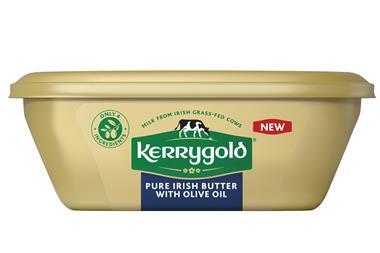One arena in which category giant Muller has failed to shine is organic yogurts, as its first foray into the burgeoning sector - Muller Organic - was pulled from shelves in June this year.
The company points out that the brand captured average four-weekly sales of £175,000 and blames supply issues for the products' withdrawal.
Ironically, Muller's mainstream dominance could have restricted its achievements in the organic arena. As one multiple buyer puts it: "Dairy is one of the longest established categories for organic products and consumers have become used to specialists; they don't really trust a big name. At the same time, the average Muller consumer isn't prepared to pay a premium."
Gerry Roads, md of Yoplait Dairy Crest, tells a similar story on supply and admits Organic Petit Filous is "not exactly setting the world on fire".
"The market's certainly slowed down," he says. "Everyone's sitting back and saying I'm not sure where this is going'."
However, organic dairy market leader Yeo Valley, which has a 55% share of the market, disagrees. It claims that, by the end of 2001, consumers had spent more than £45m on organic yogurts, a rise of 14% year-on-year, and nearly three times the rate of growth in non-organic.
The company added seven new standard yogurts and three fat-free ones to its portfolio this year and expects value growth will continue. "We also expect the pattern to be repeated in desserts and fromage frais," says a spokesman.
Quality is paramount in organic foods, although competitive pricing is crucial to long term success. The lack of price sensitivity is reflected by value growth being stronger than volume and the most successful new entries at the premium end.
{{Z SUPPLEMENTS }}
The company points out that the brand captured average four-weekly sales of £175,000 and blames supply issues for the products' withdrawal.
Ironically, Muller's mainstream dominance could have restricted its achievements in the organic arena. As one multiple buyer puts it: "Dairy is one of the longest established categories for organic products and consumers have become used to specialists; they don't really trust a big name. At the same time, the average Muller consumer isn't prepared to pay a premium."
Gerry Roads, md of Yoplait Dairy Crest, tells a similar story on supply and admits Organic Petit Filous is "not exactly setting the world on fire".
"The market's certainly slowed down," he says. "Everyone's sitting back and saying I'm not sure where this is going'."
However, organic dairy market leader Yeo Valley, which has a 55% share of the market, disagrees. It claims that, by the end of 2001, consumers had spent more than £45m on organic yogurts, a rise of 14% year-on-year, and nearly three times the rate of growth in non-organic.
The company added seven new standard yogurts and three fat-free ones to its portfolio this year and expects value growth will continue. "We also expect the pattern to be repeated in desserts and fromage frais," says a spokesman.
Quality is paramount in organic foods, although competitive pricing is crucial to long term success. The lack of price sensitivity is reflected by value growth being stronger than volume and the most successful new entries at the premium end.
{{Z SUPPLEMENTS }}


















No comments yet